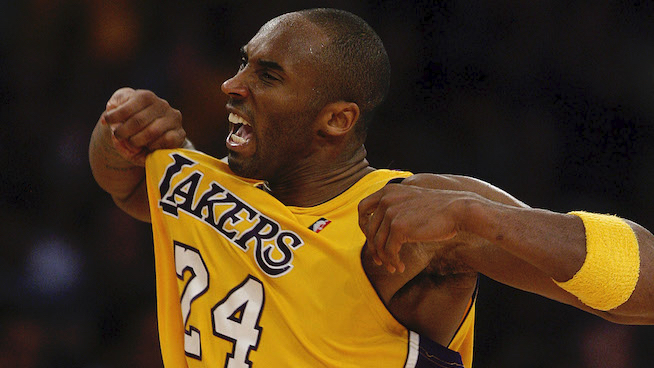College Football Camps: A Guide to Getting Noticed

By now you’ve had a chance to peruse camps in your area and throw down some green for the opportunity to showcase your gridiron greatness. To ensure that the monetary investment pays dividends in your future, STACK tracked down ESPN college football senior writer Bruce Feldman to gain insight on what qualities coaches seek in a player, how to act on and off the field, and the realistic expectations and goals you should have for college summer camps.
In addition to his ESPN the Magazine and espn.com duties, Feldman is also the author of the top-selling book Meat Market: Inside the Smash-Mouth World of College Football Recruiting, which provides exclusive access to the cutthroat industry from a college coaching staff’s vantage point. As highlighted in Meat Market, one of the most integral steps of the recruiting process is summer camp, where an athlete can jumpstart his campaign by impressing coaches, who ultimately possess the final scholarship vote.
Read on for advice about standing out among a flock of attention-hungry vultures vying to pluck full-ride rations from thin college carcasses.
Pre-Camp
Attend often and early. If you’re truly serious about playing collegiate ball, definitely register for a camp before your senior year. The earlier you attend a camp during your high school career, the more you’ll benefit from the experience.
“[Going to camp] before sophomore or junior year will provide perspective on what goes on at a camp and what’s expected,” Feldman says. “Perform well before your junior year and a school is going to recruit you.”
You’re not in [hometown name] anymore. Yes, you’re the envy of all your high school teammates, cheerleaders and local sportswriters, but keep in mind: it’s a big football world out there.
“At these camps a player is going to be around the better athletes across the country and not just from his confined area,” Feldman says. “At the very least, a big-time college camp will provide perspective on how a player measures up to other players and maybe what you need to work on. It’s definitely [important] to see where you fit in.”
Take it easy on the protein. One mistake Feldman witnessed was athletes trying to put on too much clumsy weight before camps just to “look the part.”
“Players bloat up and then probably don’t work out as well due to excess weight,” Feldman says. “College coaches want guys who can run at these camps. If you’re athletic, college coaches find ways to get a player on the field and eventually the guy will develop and grow into his body.”
Don’t be a “website warrior.” Granted, many recruiting sites attempt to provide an in-depth analysis on the potential of a 16- or 17-year-old athlete. But once camps start, college coaches merely use sites’ rankings as a reference point. “Athletes put too much credence in their reputation,” Feldman claims. “A player may come into a camp as a four-star guy and look the part, but when he performs it starts to fade away really fast.”
If you happen to be a highly ranked interweb player, congrats, but check your message-boards ego at the college’s campus gates.
“I observed many players trying to live up to their reputation. And once they started struggling at these camps, they panicked because they felt like underachievers,” Feldman says. “In most cases, these players weren’t properly evaluated in the first place.”
During Camp
One chance to make a first impression. A lot of you probably are not familiar with the formal interview process; basically it’s the crucial bridge that introduces your unique talents to an interested employer. The summer camp meet-and-greet swaps ties for helmets and nerve-racking questions for 7-on-7 drills, with the same end goal: make a lasting impression.
“Do not come across as somebody coaches and potential teammates do not want to be around,” Feldman says. “Football skill is a big part in the evaluation; but if you’re a guy who’s going to be a pain in the behind in position meetings, for example, then they’ll find someone else.”
Ultimately, it comes down to maturity. Respectfully pay attention to the coaches and other university staff members at all times. Remember, you’re a guest on their campus.
And apologies if the following is an outlandish request, but refrain from constantly texting on your iPhone, playing games on your Blackberry or downloading Journey songs on your iPod during the 48 hours you’re on campus. Feldman emphasizes, “If you’re distracting yourself and not acting like you want to be there, then coaches don’t want you there either.”
Shhh, don’t tell the NCAA. Feldman claims camps are “de facto tryouts”—whether the coaches can say it or not. “You’re getting coached by them in their drills, in their setting, in their language and their terminology,” he says.
In most cases, coaches run camps like a regular college practice with their respective position coaches heading up drills. “Coaches not only get to see what kind of an athlete a kid is, but how he accepts and responds to instruction or criticism,” Feldman says.
For example, if you’re a quarterback and you throw a few wounded ducks, don’t show outward frustration through negative body language. Stay positive and have a short-term memory. Prove to the coaches you have an upbeat attitude and that you’re willing to accurately process instruction and flawlessly perform.
What does he bring to the table? “College coaches are looking for every little detail that can show them if a kid can develop into a big-time contributor for their programs,” Feldman says.
More specifically, Feldman gathered from his observations that coaches obviously want great athletes who can run and jump, but precise change-of-direction movement is a critical attribute. “If a kid’s stiff, that instantly scares coaches,” Feldman warns.
Coaches intensely watch a player’s mannerisms and coachability, too. “Coaches [take note] if an athlete makes the same mistake four times in a row after he was instructed to not do it that way—that’s a big one,” Feldman advises. “Other questions coaches internally ask in meetings after camps include: Does he have great anticipation? Is he a leader? Is he the guy we’re using as an example to start off all the camp drills? When we talk to him, does it look like no one’s home? Is he soft? Is he a loner?”
Compete. Compete. Compete. Feldman says that although the list of qualities coaches seek in players is long, the desire and ability to get after it hard is never compromised. “It’s what coaches talk about constantly,” he says. Compete well in a one-on-one drill—one of coaches’ favorite tests to gauge an individual’s desire—and a coach will remember your name.
“If a kid really lights up a drill, then he is probably getting followed closely the rest of the day,” Feldman says.
Post-Camp
Learn something. Lost in the narrow-minded infatuation of trying to strike scholarship gold is the simple fact that you are there to receive instruction from top collegiate prospectors in the field. Feldman points out: “An athlete should be able to acquire tips and different techniques to help him for his upcoming high school season.” For many camp participants, an attainable expectation should be to learn fast—not earn cash. Absorb the drills and coaching to refine technique for the future.
Let’s get real. Yes, it’s your hope, your family’s hope, your high school coach’s hope and STACK’s hope that you corral that elusive scholarship offer, but you need to be realistic about camps. “Have a good time and approach it like an interview, but keep in mind that most athletes are not going to be offered scholarships at these camps,” Feldman predicts. “If there are 300 kids at the camp, there might be 10 that receive scholarship offers.”
A camp, however, should provide you the chance to land on a coach’s radar. “If you play well enough to impress, you can get on a college’s recruiting board so [coaches] will write you letters and watch you on film during the season,” Feldman says. “What you do in the summer is great, but the old cliché is ‘the film doesn’t lie,’ so if you go lights-out in a camp, then that is the building block to get on the radar and have a coach watch you more.”
RECOMMENDED FOR YOU
MOST POPULAR
College Football Camps: A Guide to Getting Noticed

By now you’ve had a chance to peruse camps in your area and throw down some green for the opportunity to showcase your gridiron greatness. To ensure that the monetary investment pays dividends in your future, STACK tracked down ESPN college football senior writer Bruce Feldman to gain insight on what qualities coaches seek in a player, how to act on and off the field, and the realistic expectations and goals you should have for college summer camps.
In addition to his ESPN the Magazine and espn.com duties, Feldman is also the author of the top-selling book Meat Market: Inside the Smash-Mouth World of College Football Recruiting, which provides exclusive access to the cutthroat industry from a college coaching staff’s vantage point. As highlighted in Meat Market, one of the most integral steps of the recruiting process is summer camp, where an athlete can jumpstart his campaign by impressing coaches, who ultimately possess the final scholarship vote.
Read on for advice about standing out among a flock of attention-hungry vultures vying to pluck full-ride rations from thin college carcasses.
Pre-Camp
Attend often and early. If you’re truly serious about playing collegiate ball, definitely register for a camp before your senior year. The earlier you attend a camp during your high school career, the more you’ll benefit from the experience.
“[Going to camp] before sophomore or junior year will provide perspective on what goes on at a camp and what’s expected,” Feldman says. “Perform well before your junior year and a school is going to recruit you.”
You’re not in [hometown name] anymore. Yes, you’re the envy of all your high school teammates, cheerleaders and local sportswriters, but keep in mind: it’s a big football world out there.
“At these camps a player is going to be around the better athletes across the country and not just from his confined area,” Feldman says. “At the very least, a big-time college camp will provide perspective on how a player measures up to other players and maybe what you need to work on. It’s definitely [important] to see where you fit in.”
Take it easy on the protein. One mistake Feldman witnessed was athletes trying to put on too much clumsy weight before camps just to “look the part.”
“Players bloat up and then probably don’t work out as well due to excess weight,” Feldman says. “College coaches want guys who can run at these camps. If you’re athletic, college coaches find ways to get a player on the field and eventually the guy will develop and grow into his body.”
Don’t be a “website warrior.” Granted, many recruiting sites attempt to provide an in-depth analysis on the potential of a 16- or 17-year-old athlete. But once camps start, college coaches merely use sites’ rankings as a reference point. “Athletes put too much credence in their reputation,” Feldman claims. “A player may come into a camp as a four-star guy and look the part, but when he performs it starts to fade away really fast.”
If you happen to be a highly ranked interweb player, congrats, but check your message-boards ego at the college’s campus gates.
“I observed many players trying to live up to their reputation. And once they started struggling at these camps, they panicked because they felt like underachievers,” Feldman says. “In most cases, these players weren’t properly evaluated in the first place.”
During Camp
One chance to make a first impression. A lot of you probably are not familiar with the formal interview process; basically it’s the crucial bridge that introduces your unique talents to an interested employer. The summer camp meet-and-greet swaps ties for helmets and nerve-racking questions for 7-on-7 drills, with the same end goal: make a lasting impression.
“Do not come across as somebody coaches and potential teammates do not want to be around,” Feldman says. “Football skill is a big part in the evaluation; but if you’re a guy who’s going to be a pain in the behind in position meetings, for example, then they’ll find someone else.”
Ultimately, it comes down to maturity. Respectfully pay attention to the coaches and other university staff members at all times. Remember, you’re a guest on their campus.
And apologies if the following is an outlandish request, but refrain from constantly texting on your iPhone, playing games on your Blackberry or downloading Journey songs on your iPod during the 48 hours you’re on campus. Feldman emphasizes, “If you’re distracting yourself and not acting like you want to be there, then coaches don’t want you there either.”
Shhh, don’t tell the NCAA. Feldman claims camps are “de facto tryouts”—whether the coaches can say it or not. “You’re getting coached by them in their drills, in their setting, in their language and their terminology,” he says.
In most cases, coaches run camps like a regular college practice with their respective position coaches heading up drills. “Coaches not only get to see what kind of an athlete a kid is, but how he accepts and responds to instruction or criticism,” Feldman says.
For example, if you’re a quarterback and you throw a few wounded ducks, don’t show outward frustration through negative body language. Stay positive and have a short-term memory. Prove to the coaches you have an upbeat attitude and that you’re willing to accurately process instruction and flawlessly perform.
What does he bring to the table? “College coaches are looking for every little detail that can show them if a kid can develop into a big-time contributor for their programs,” Feldman says.
More specifically, Feldman gathered from his observations that coaches obviously want great athletes who can run and jump, but precise change-of-direction movement is a critical attribute. “If a kid’s stiff, that instantly scares coaches,” Feldman warns.
Coaches intensely watch a player’s mannerisms and coachability, too. “Coaches [take note] if an athlete makes the same mistake four times in a row after he was instructed to not do it that way—that’s a big one,” Feldman advises. “Other questions coaches internally ask in meetings after camps include: Does he have great anticipation? Is he a leader? Is he the guy we’re using as an example to start off all the camp drills? When we talk to him, does it look like no one’s home? Is he soft? Is he a loner?”
Compete. Compete. Compete. Feldman says that although the list of qualities coaches seek in players is long, the desire and ability to get after it hard is never compromised. “It’s what coaches talk about constantly,” he says. Compete well in a one-on-one drill—one of coaches’ favorite tests to gauge an individual’s desire—and a coach will remember your name.
“If a kid really lights up a drill, then he is probably getting followed closely the rest of the day,” Feldman says.
Post-Camp
Learn something. Lost in the narrow-minded infatuation of trying to strike scholarship gold is the simple fact that you are there to receive instruction from top collegiate prospectors in the field. Feldman points out: “An athlete should be able to acquire tips and different techniques to help him for his upcoming high school season.” For many camp participants, an attainable expectation should be to learn fast—not earn cash. Absorb the drills and coaching to refine technique for the future.
Let’s get real. Yes, it’s your hope, your family’s hope, your high school coach’s hope and STACK’s hope that you corral that elusive scholarship offer, but you need to be realistic about camps. “Have a good time and approach it like an interview, but keep in mind that most athletes are not going to be offered scholarships at these camps,” Feldman predicts. “If there are 300 kids at the camp, there might be 10 that receive scholarship offers.”
A camp, however, should provide you the chance to land on a coach’s radar. “If you play well enough to impress, you can get on a college’s recruiting board so [coaches] will write you letters and watch you on film during the season,” Feldman says. “What you do in the summer is great, but the old cliché is ‘the film doesn’t lie,’ so if you go lights-out in a camp, then that is the building block to get on the radar and have a coach watch you more.”
RECOMMENDED FOR YOU
Create A Free Recruiting Profile Today!
CaptainU helps athletes & parents not only be proactive but also to manage and take control of their entire recruiting journey.











